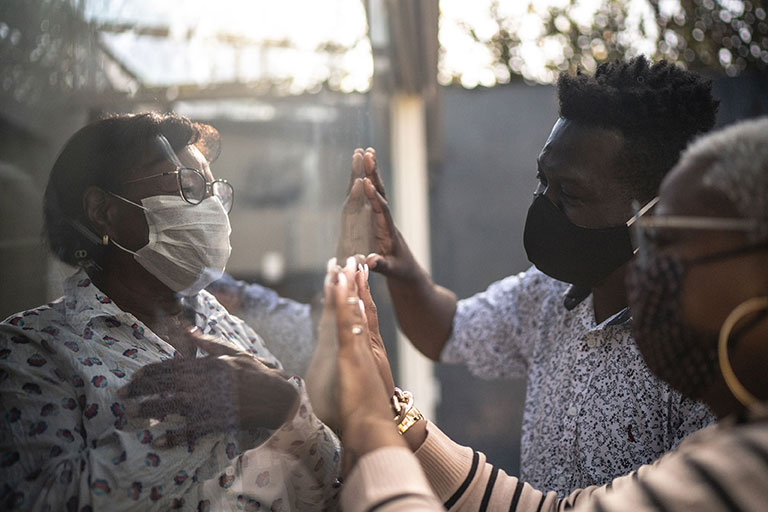February 2021
The COVID-19 pandemic and resulting recession have disrupted many aspects of social life, including everyday interactions with family, friends, co-workers and neighbors.
Furthermore, societal fault lines have exacerbated these impacts, disproportionately affecting the most disadvantaged groups.
Researchers at Indiana University are studying how social inequality and social interactions are coevolving during the crisis and how they interact to shape a person’s health and wellbeing. The work is possible through a grant from the Russell Sage Foundation.
"This research will help us understand how the people in your life can serve as a buffer or a stressor during periods of social or economic crisis, so the implications go beyond the current pandemic," said Brea Perry, professor in the College of Arts and Sciences' Department of Sociology at IU Bloomington. "We are particularly interested in whether these social processes widen the gap between the haves and have-nots. To examine this question, we will look at how access to social support and social capital differ across socioeconomic and racial and ethnic groups."
Research has shown that social ties can help people cope with stressful situations and can improve their wellbeing. However, effects of the pandemic, such as increased poverty, uncertainty and marginality, may negatively affect the access to social networks or the ability of friends and family members to help.
To study these patterns, IU researchers are building on the existing Person to Person (P2P) Health Interview Study that collected a first wave of data in 2019 and a second in the beginning months of the pandemic (from late March through May 2020). The P2P, funded by IU's Grand Challenges program, aims to understand social, psychological, and biological determinants of health and illness, and is representative of the state of Indiana.
In March and June of 2021, researchers will collect a third wave of data, allowing them to assess the social, economic and health consequences of the pandemic over the longer term, and to track social network dynamics at different stages to evaluate how support processes evolve as individual and community needs and resources are changing.
The study has three aims. First, to describe COVID-related changes in social interactions and in the characteristics of personal networks and for different racial/ethnic and socioeconomic groups. Second, researchers will then examine whether social interaction and personal social network characteristics moderate the pandemic’s impact on social, economic and health outcomes. Finally, they will identify the characteristics of ties that are activated to provide support during a national crisis, and whether such help-seeking decisions affect outcomes.
“Events such as COVID-19 can impact people’s lives significantly and quickly and these changes can make staying healthy even more difficult for disadvantaged groups,” said Heather Francis, assistant research scientist at IU and co-investigator of the study. “This work will help us better understand how events like this affect those groups to eventually provide a better safety net in the future.”
Bernice Pescosolido, Distinguished Professor of sociology at IU, is also a co-investigator of the study. The project is one of two IU projects recently funded by the Russell Sage Foundation. The other, by Dina Okamoto and colleagues from Santa Fe Institute, will study the use of "us vs. them" boundary rhetoric by politicians over time. IU received two out of the 12 research grants announced by the Russell Sage Foundation in January 2021.



